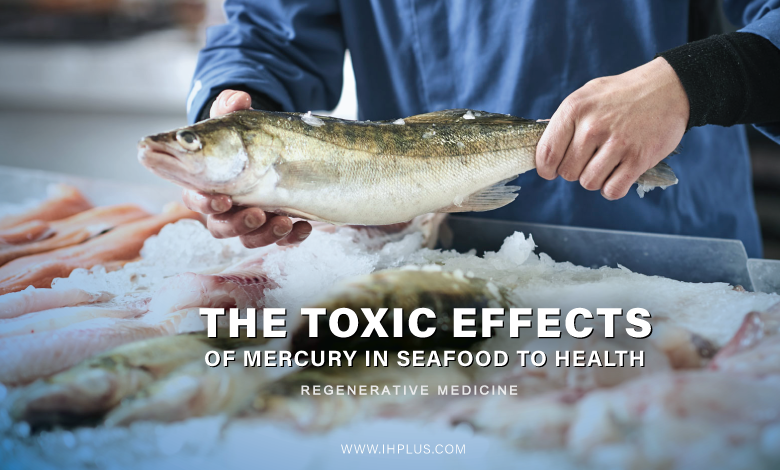
The Toxic Effects of Mercury in Seafood on Health
The Toxic Effects of Mercury in Seafood on Health: Understanding the Risks and Making Informed Choices
Seafood has long been hailed as a nutritious and delicious part of a balanced diet. Rich in omega-3 fatty acids, vitamins, and minerals, it offers numerous health benefits. However, there is a growing concern about the presence of mercury in certain types of seafood and its potential toxic effects on human health.
Mercury is a naturally occurring element that can be found in various forms in the environment. Industrial activities, such as coal burning and mining, have also contributed to the release of mercury into the air and water. Once mercury enters aquatic ecosystems, it undergoes a transformation into methylmercury, a highly toxic organic compound that bioaccumulates in fish and other seafood.
The primary route of human exposure to methylmercury is through the consumption of contaminated seafood. Larger predatory fish, such as shark, swordfish, king mackerel, and certain types of tuna, tend to accumulate higher levels of mercury due to their position in the food chain. Pregnant women, nursing mothers, and young children are particularly vulnerable to the harmful effects of mercury, as it can affect the developing nervous system.
What are the potential health risks associated with mercury in seafood?
- Neurological Effects: Methylmercury has been shown to have toxic effects on the nervous system. Prenatal exposure to high levels of mercury can lead to developmental delays, cognitive impairments, and learning disabilities in children. In adults, long-term exposure to elevated mercury levels may result in neurological symptoms, including memory loss, tremors, and difficulties with coordination and balance.
- Cardiovascular Risks: Some studies have suggested a possible link between mercury exposure and an increased risk of cardiovascular problems. High levels of mercury have been associated with hypertension, an elevated risk of heart attacks, and an increased incidence of cardiovascular disease in certain populations. However, more research is needed to establish a definitive connection between mercury exposure from seafood and cardiovascular health.
- Reproductive and Developmental Effects: Mercury can also have adverse effects on reproductive health. In women of childbearing age, high levels of mercury can impair fertility and increase the risk of miscarriage. Additionally, prenatal exposure to mercury has been linked to developmental issues, including delays in motor skills, language development, and attention deficits.
It is important to note that the risks associated with mercury consumption depend on the amount and frequency of seafood consumption, as well as the specific types of seafood consumed. For most adults, the health benefits of eating a variety of seafood outweigh the risks associated with mercury exposure. However, pregnant women, nursing mothers, and young children should be particularly cautious and follow the guidelines provided by health authorities.
To minimize the potential risks of mercury in seafood:
- Stay informed: Stay updated on advisories and guidelines issued by health agencies regarding mercury levels in different types of seafood. These guidelines provide recommendations on safe consumption levels and identify fish that are lower in mercury.
- Choose wisely: Opt for fish and seafood that are known to be lower in mercury, such as salmon, shrimp, sardines, and trout. These options still provide the health benefits of seafood without the same mercury concerns.
- Vary your choices: By diversifying your seafood choices, you can reduce the risk of overexposure to any one type of fish. This way, you can enjoy the nutritional benefits of seafood while minimizing potential mercury intake.
- Practice portion control: Be mindful of portion sizes when consuming seafood. Consuming smaller portions helps reduce overall mercury exposure.
- Consider alternatives: If you are concerned about mercury but still want to enjoy the health benefits of omega-3 fatty acids, consider alternative sources such as plant-based omega-3 supplements derived from algae or other fortified foods.
By understanding the risks associated with mercury in seafood and making informed choices, individuals can continue to enjoy the many benefits of seafood while minimizing potential health hazards. It is essential for both consumers and regulatory bodies to work together to ensure the safety of our food supply and protect public health.
YOU MAY BE INTERESTED..
Our treatment treated at IntelliHealthPlus Clinic By StemCells21
Book a FREE Consultation Now
IH+ Contact Form
Contact our international team of medical professionals with language services available in English, Thai, Arabic, Chinese, Spanish, and Russian.
Please indicate your preferred language and we will do our best to accommodate your request.

